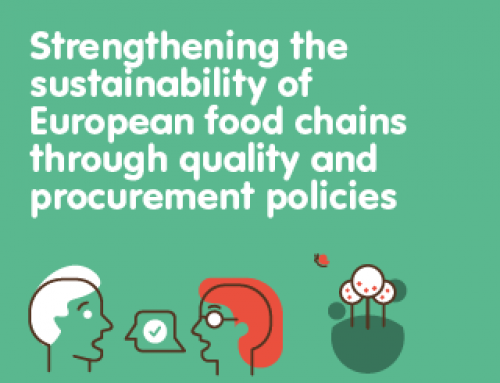Responsible Partner: UNED, ZAG
Authors: Mary Brennan, Angela Tregear, Maysara Sayed (UNED); Ružica Brečić, Irena Colić Barić, Andrea Lučić, Martina Bituh, Ana Ilić, Dubravka Sinčić Ćorić (ZAG); Efthimia Tsakiridou, Konstadinos Mattas, Christos Karelakis, Alexandros Gkatsikos, Ioannis Papadopoulos (AUTH); Filippo Arfini, Beatrice Biasani, Daniele Del Rio, Michele Donati, Francesca Giopp, Gianluca Lanza, Alice Rosi, Francesca Scazzina (UNIPR); Jelena Filipovic, Zorica Anicic (BEL) Steve Quarrie (EUTA)
Date of Publication: February 2019
This final report presents the methods and results of WP6.2, evaluating the nutritional outcomes of different models of PSFP in a primary school context, including the role of plate waste. Maintaining a healthy diet that satisfies nutritional needs is extremely important in childhood, due to the increased need for a balanced intake of energy and nutrients to ensure optimal growth and development. The provision of adequate nourishment for children in institutional contexts (i.e. schools) is considered a matter of special public health concern, and European and national governments have established specific school food based standards and nutritional guidelines for organized meal planning. However, the nutritional value of institutionally organized diets is not only determined by food based standards and nutritional guidelines, but also by food procurement policy. Therefore, this research explores how, if at all, different public sector food procurement (PSFP) models may be linked to, and influence the healthfulness and nutritive value of school meals.







